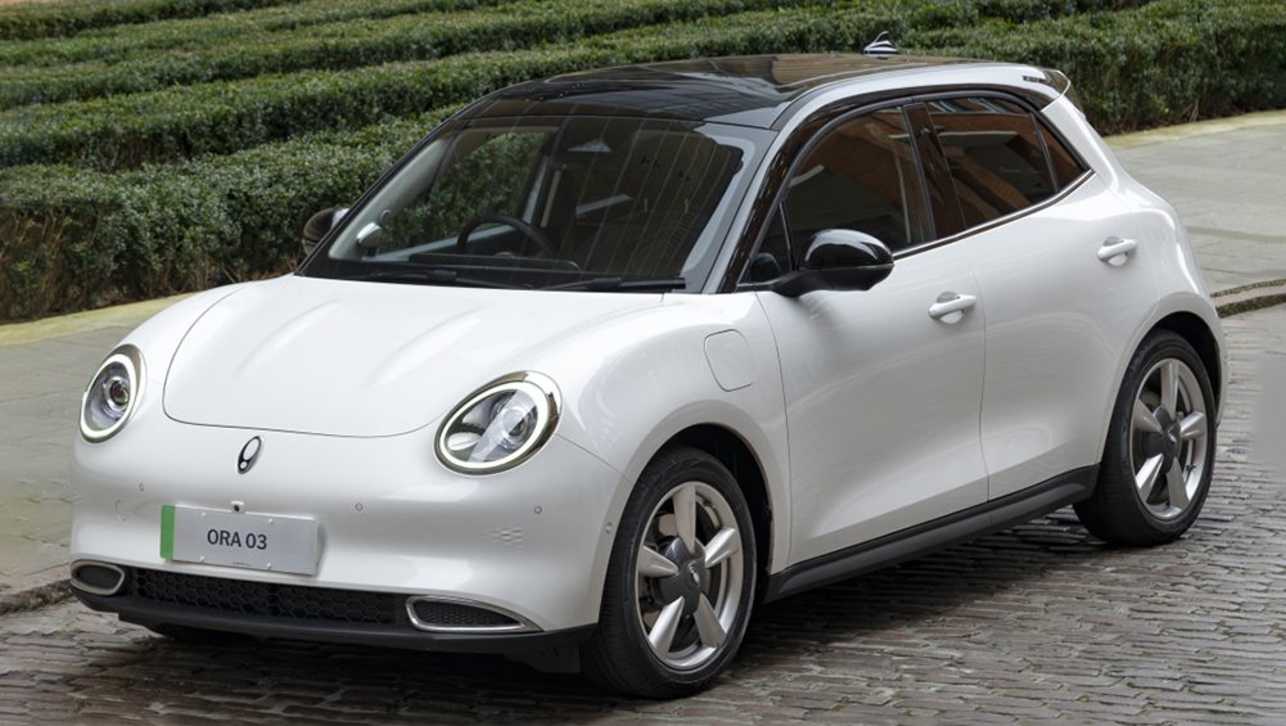According to the Oxford University Press, even a highly-trained sprinter will take at least 10 hundredths of a second to react to a starter's pistol, and the best the rest of us can do is 14-16 hundredths of a second. So when Volkswagen says the DSG gearbox which is an option on its Golf GTI hot hatch can change gears in a mere 3-4 hundredths of a second, you have to wonder: why would I want to change gears more quickly than my brain can tell my muscles to push the button?
Quite simply because it feels great!
Since the first driving lesson in a manual car we've all tried to improve our gear changes from the early days kangaroo-hopping across an intersection to mid-life's journey home with the kids asleep in the back after dinner. For those of us who want to drive well, it doesn't stop there.
If you're half-serious about your driving, you try to improve the speed and fluidity of 'transitions' - the way your car shifts its centre of balance forward under braking, backward under acceleration, and sideways under cornering. Performance driving instructors will tell you mastering smooth transitions will save you much more time around a racetrack than accelerating harder. Every hundredth of a second your gearbox spends in neutral leaves you less time to get the power on or off and get the car trimmed for the next corner.
Car manufacturers know that a good automatic transmission can deliver better performance and economy than the manual equivalent, but they also know that many of us can't live with leaving the gearchange decisions to the car. So since the beginning of the 20th century they've been trying to build a better gearbox that combines the best of automatic and manual transmissions.
There is now such a proliferation of 'flappy paddle' and 'sport shift' transmissions on the market that I've done some further research on the topic that you can read later (and probably disagree with me on definitions and technologies - feel free to add your opinion.)
When Volkswagen were kind enough to loan me a Golf GTI fitted with DSG for a week, I fell so deeply in love with its gear changes, I emptied the petrol they'd filled it with and refilled it twice on my own dime. For someone who lives only 8km from the office, and considering I averaged 15-16L/100km that's a lot of driving in one week.
With the exception of getting stuck behind a semi on the famously twisty bits of Buckety's Way - no fault of the Golf's - I had a big, stupid grin plastered to my face the whole week. I'm no stranger to flappy paddles - my wife drives a Mini Cooper S fitted with Mini's 6-speed sequential transmission (because I like technology and my wife prefers not to have a clutch pedal.) Sadly, the DSG makes the Mini's changes seem clunky and slow. I miss DSG.
DSG mates two sets of cogs and two wet multiplate clutches with a computer that is calculating which gear you'll select next. One clutch has your current gear, and the other clutch has your next gear ready and waiting, so the moment you flick the flappy paddle, you change gear. At three hundredths of a second it happens three times as fast as your brain can tell your hand to tap the paddle.
Leave the gear lever in Drive and the DSG behaves like the kind of velvet transmission you'll find in a big Lexus. The smoothness comes from the sophisticated computer timing each shift to perfection and the handing over from one already-spinning cog to another instead of the engine spinning up for a moment while a single clutch finds the next gear.
Push the GTI's gearshift over to the left from Drive and the DSG will now accept your input before its own. If you want to hold a gear a little longer, DSG will let you. If you forget to change yourself, DSG will still step in to keep things smooth, but it will wait for your input first. You have the choice of wheel-mounted paddles or pushing the gearshift forward and back, so you really have no excuse for forgetting.
The fun really starts when you push the gearshift one slot further down, into Sport mode. Now DSG will assume that you're here to optimise your weight transfer and carry as much speed as is safe from one transition to the next. It lets you hold a gear up into the red zone, and skip as many gears as you need to under heavy braking. You'll automatically receive a satisfying 'blatt' from the sports exhaust too, without any of that fiddly heel-and-toe business you'd need to do with a manual car.
All good sequential gearboxes provide this sort of functionality, but where DSG stands alone is in the smoothness and speed of its changes. There's really nothing like having the neutral moment of a transition over with in three hundredths of a second. Shuey's familiar with it, a Ferrari, Maserati or Lamborghini owner will know how it feels, but other than that the only way to experience this is in the $58,790 Golf R32 or $72,000 Audi TT Coupe.
You might not beat any of them to the corner at the end of the main straight, but you will certainly look like a track star when you carve out of the last apex in a series of tight bends. DSG's computer-controlled double clutch will flatter and complement your input every time.
What's the downside of DSG? The good news is that despite a 20kg weight difference, you're unlikely to notice any difference in driving dynamics over the manual. Considering all the extra technical gubbins under the hood to make it work and the fact you're essentially driving with two gearboxes connected at the waist, that's no small achievement. The DSG version lists at $2,300 more than the manual, but considering even a DSG-equipped GTI is still only $42,290 RRP, it's still the best-value European hot hatch in its class on a bang-for-buck basis. You could spend around $3,000 getting leather, or a sat nav, or a sunroof and metallic paint...
Nah! If you're a real hot hatch driver, what you really want is the ability to change gears twice as fast as you can think.





.jpg)
.jpg)



.jpg)
.jpg)

.jpg)


.jpg)













Comments